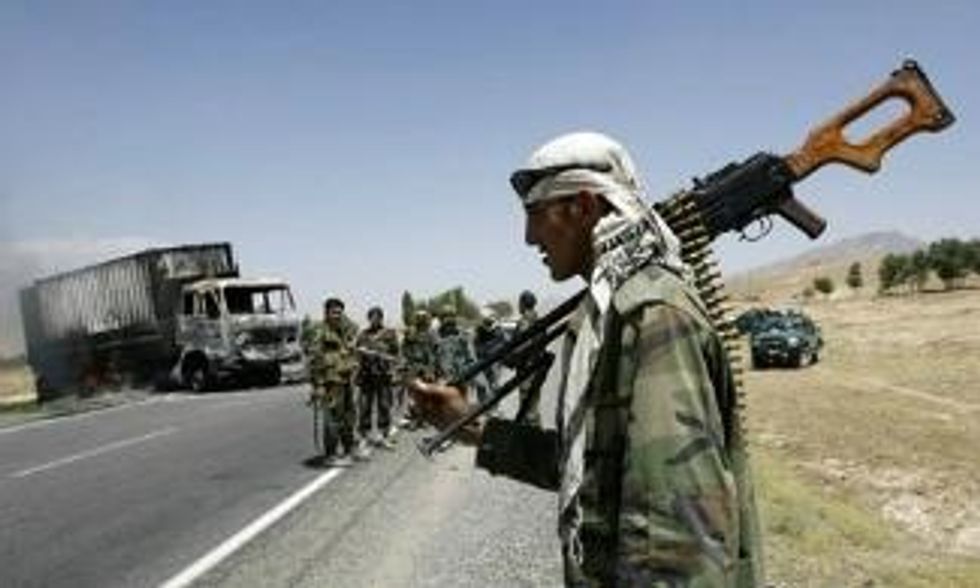After more than 10 years of war against al Qaeda and the accompanying global "war on terrorism," we have failed to learn that our actions create reactions. Our presence creates destabilization, then radicalization. Occupations create insurgencies. In Afghanistan, we have fueled the very insurgency we struggle to fight.
Al Qaeda had relatively little if any presence in Iraq prior to the U.S. invasion. The U.S. invasion and occupation of Iraq, and the subsequent destruction and violence, enabled al Qaeda to flourish. Al Qaeda and its affiliates are now conducting an accelerated campaign of relentless attacks and suicide bombings in Iraq.
Last year's intervention in Libya is another example. The U.S. and its North Atlantic Treaty Organization allies spurred a civil war, taking sides despite persistent questions about the nature of the opposition. The war and the chaos that followed have allowed radical groups to gain another foothold.
In Syria, prominent leaders in western nations are trying to make the case for intervention, despite the fact that our own intelligence agencies do not know exactly what is transpiring on the ground or who is doing what to whom. We do know that the chaos has provided al Qaeda the opportunity to expand, as recently reported by The New York Times:
The evidence is mounting that Syria has become a magnet for Sunni extremists, including those operating under the banner of Al Qaeda...
Daniel Byman, a counterterrorism expert who is a professor at Georgetown University and a fellow at the Brookings Institution, said it is clear that al Qaeda is trying to become more active in Syria. As it has already done in Somalia and Mali, and before that in Chechnya and Yemen, the group is trying to turn a local conflict to its advantage.
Headlines in papers around the world eliminate any doubt. The Guardian: "Syria: Foreign jihadists could join battle for Aleppo" and "Al-Qaida turns tide for rebels in battle for eastern Syria." The New York Times: "As Syrian War Drags On, Jihadists Take Bigger Role." The Washington Post: "In Syria, group suspected of al-Qaeda links gaining prominence in war to topple Assad."
Recently, despite the presence of extremist elements among the opposition, President Obama stated:
"We cannot have a situation in which chemical or biological weapons are falling into the hands of the wrong people... We have been very clear to the Assad regime, but also to other players on the ground, that a red line for us is we start seeing a whole bunch of chemical weapons moving around or being utilized."
This situation is rife with potential for a "false flag" operation.
Afghanistan, Iraq, Libya, Syria -- al Qaeda surfs instability created or supported by U.S. interventions. Al Qaeda is ready to exploit resentment toward the U.S. while capitalizing on the openings created by U.S. interventionism. As a result our U.S. tax dollars are being used to fuel the rise of extremism.
Have we learned nothing from the Soviet Union's demise as a result of its adventure in Afghanistan? Will we continue to spend tax dollars to create even more U.S. enemies which will then be used to justify the expenditure of more U.S. tax dollars, thus setting the stage for an accelerated downward spiral for our economy and our own decline as a great power?




